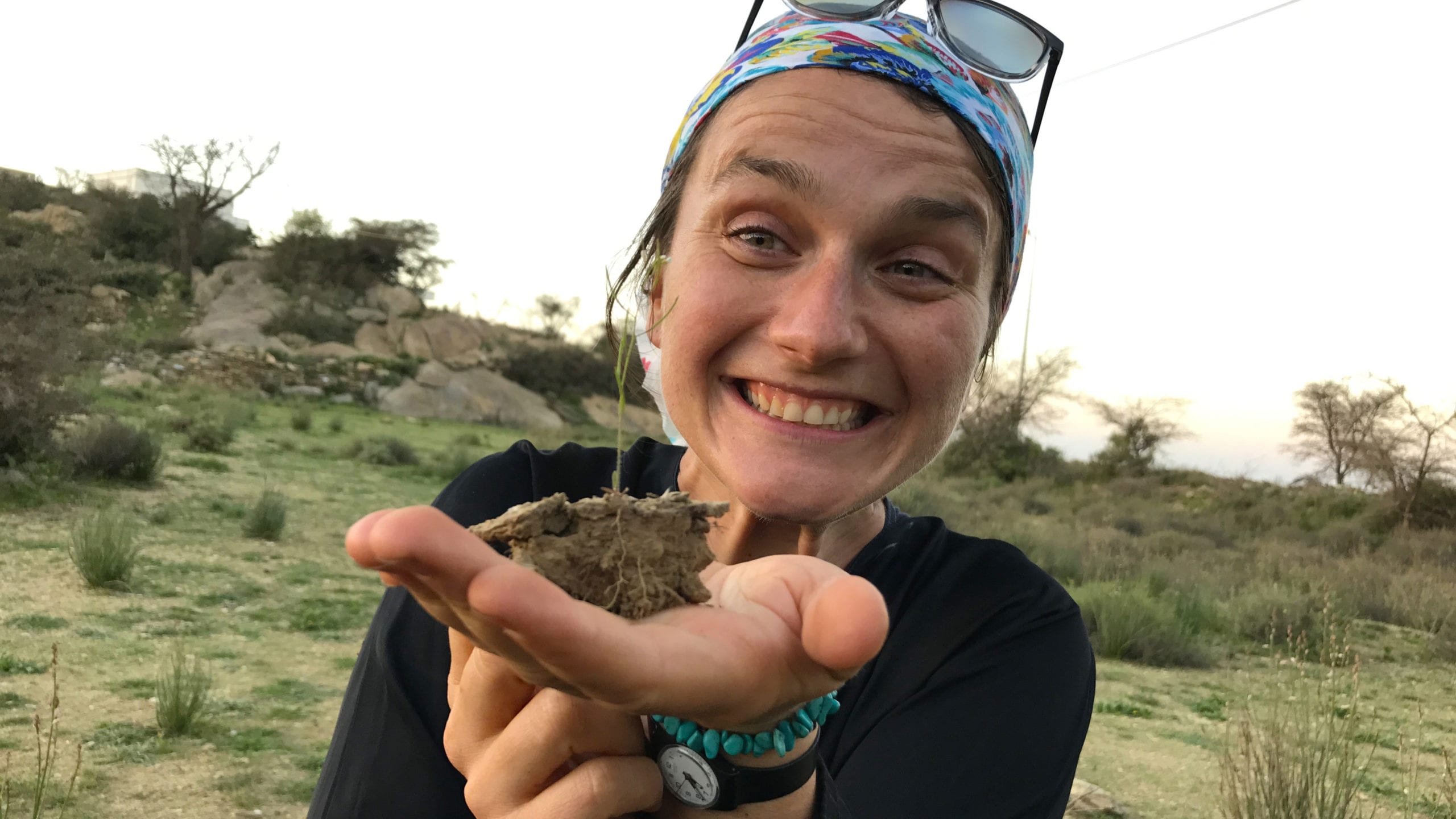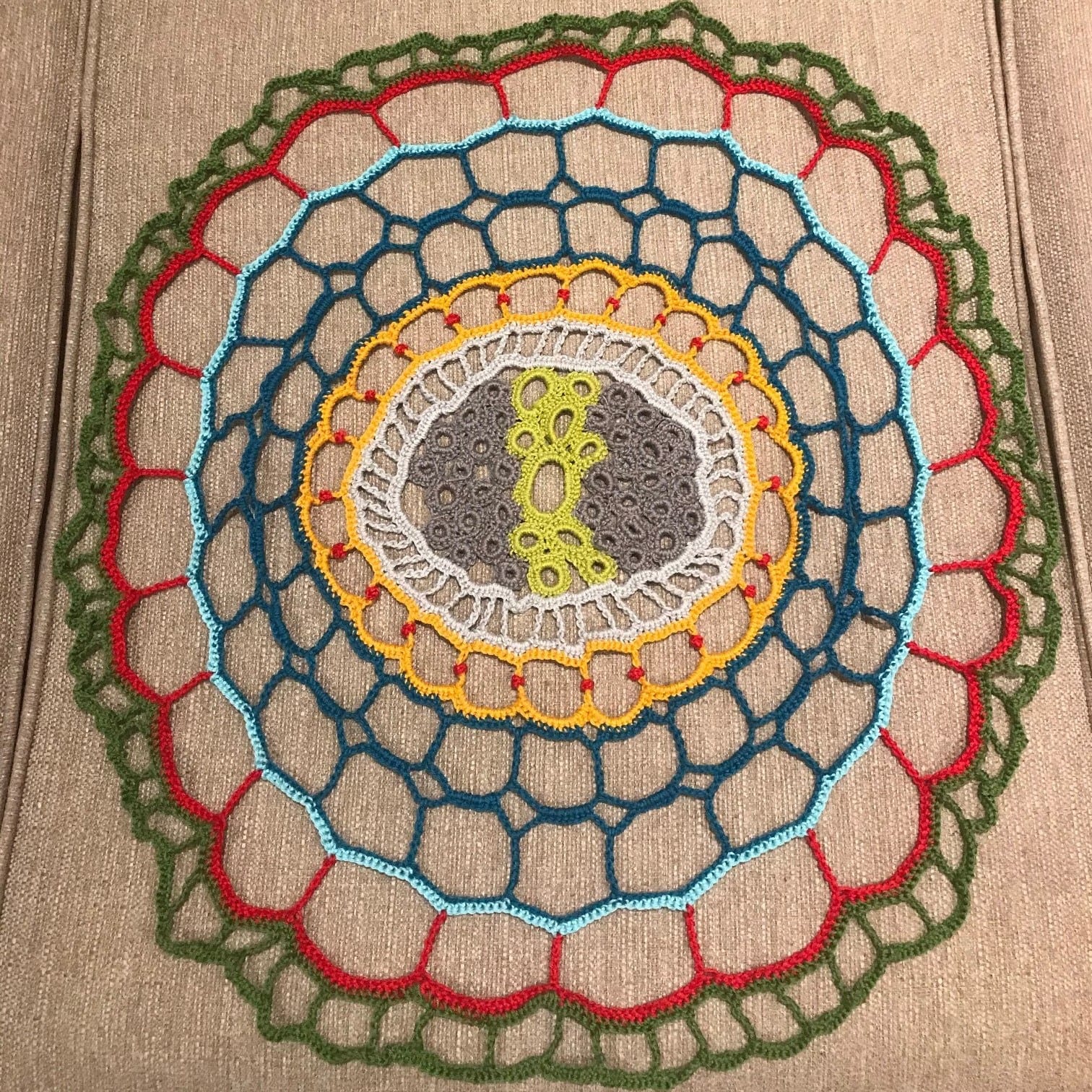News
Magdalena Julkowska Joins BTI as Newest Faculty Member

BTI’s newest faculty member, Magdalena Julkowska, poses with an Arabidopsis plant she found in the Hijaz Mountains of Saudi Arabia.
Boyce Thompson Institute is excited to welcome Magdalena Julkowska to Ithaca, where she becomes our newest Assistant Professor. Magda’s main research focus is how environmental stress affects plant development and architecture, and she also plans to build an automated phenotyping platform at the Institute.
Julkowska comes to BTI from Saudi Arabia, where she was a postdoctoral fellow in Mark Tester’s lab at King Abdullah University of Science and Technology (KAUST). She and her husband Arnaud Tauffenberger made the trip to Ithaca in July, after a lengthy visa process made more nerve-racking by the COVID-19 pandemic. You can read about the experience on her blog, including how she picked up some new artistic hobbies.
“Ithaca has been somewhat of a shock to me, coming from the extreme heat and humidity of Saudi Arabia,” she says. “There is so much green, and it is so easy to go on a hike! In Saudi Arabia you need two cars with four-wheel drive, and enough food and water to survive in the desert in case something goes wrong. In Ithaca you only need to go a few minutes in just about any direction; it is quite lovely.”

Julkowska’s “Croche-section”, a crocheted cross section of a Solanum pimpinellifolium root, was inspired by a lack of access to her lab at KAUST during the Covid-19 pandemic.
Born in Poland, Julkowska’s family moved to The Netherlands when she was 13. She completed her schooling at the University of Amsterdam, where she obtained a Ph.D. in Plant Physiology studying salt stress-induced changes in root architecture of the model plant Arabidopsis in Christa Testerink’s lab.
“Plants that are under stress can look very different from those that are not under stress,” says Julkowska. “During droughts, for example, most plants will expand their root systems to better access water, but we don’t really know how they adjust to high-salt conditions. Understanding these changes could become very important as climate change leads to higher salt accumulation in the soil.”
In order to study these adjustments, Julkowska would examine the development of Arabidopsis plants on clear agar plates that had different salt levels. She would then use a scanner to photograph the plants, and analyze the images to determine how the plant architecture differed due to salinity.
During her time at KAUST, Julkowska helped set up a high-throughput phenotyping facility to collect larger amounts of data with less effort. The facility is equipped with a number of different types of cameras (standard RGB, fluorescence, infrared, etc.), and plants are grown on a conveyor belt. The setup is automated: researchers program an imaging schedule, and the computer runs the conveyor belt and cameras.
During this time, Julkowska broadened her focus to include studying whole plant architecture, examining which genes get turned on and off in roots exposed to salt, and investigating salt tolerance mechanisms in Solanum pimpinellifolium, the closest wild relative to tomato.
“The wild relative is super tolerant to drought, salt and other types of stress,” she says. “I think studying its stress tolerance mechanisms in more detail will allow us to make some exciting discoveries that could someday lead to more stress-resistant strains of tomatoes and other crops.”
At BTI, Julkowska plans to build a high-throughput phenotyping facility similar to the one at KAUST, and continue her work on S. pimpinellifolium with BTI faculty member Andrew Nelson, who was hired during the same “cluster” process as Magda.
“We want to screen S. pimpinellifolium under different stresses like drought, salt and heat, and look at how the plant architecture changes,” she says. “We will also be looking at which genes are turned on and off under different conditions, which is one of Andrew’s specialties.”
“We are thrilled to have Magda and Arnaud join the BTI family,” says BTI President David Stern. “Magda proved herself to be a nimble and collaborative thinker during the hiring process, and the phenotyping platform will accelerate discoveries throughout the BTI and Cornell campus community. We are also most fortunate that Arnaud will join us, giving us additional and unique strength in developmental biology.”
Tauffenberger will join BTI as a researcher in Frank Schroeder’s lab, where he will use microscopic soil roundworms to study ageing.
“We are both very happy to finally be here and be a part of this community,” Julkowska says. “And we are looking forward to contributing as much as we can.”

